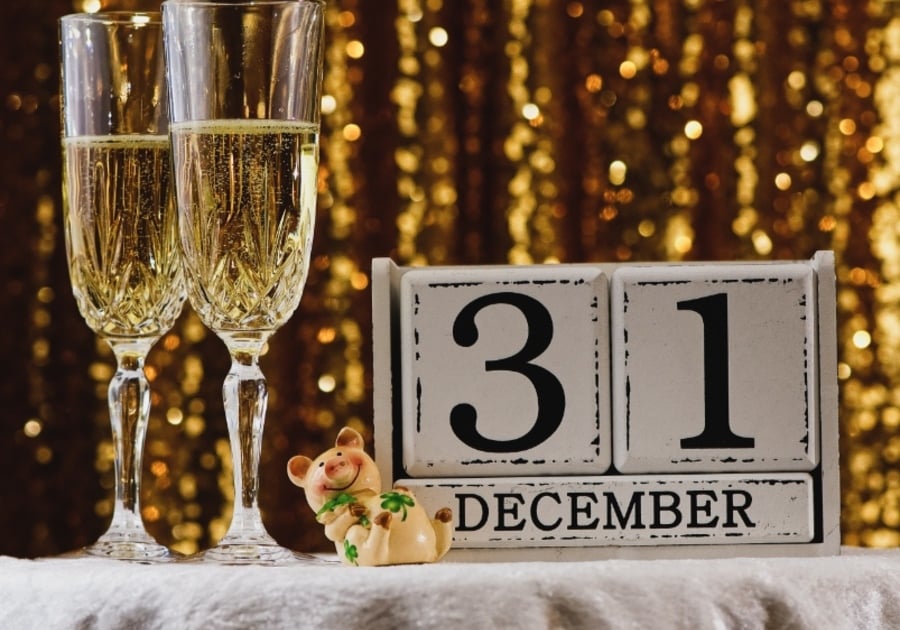Eating 12 Grapes in Spain
In Spain, it is a tradition to eat 12 grapes at the stroke of midnight on New Year's Eve, with each grape symbolizing good luck for each month of the coming year. This practice, known as "Las doce uvas de la suerte," is believed to bring prosperity and ward off evil.
Joya no Kane in Japan
In Japan, the tradition of Joya no Kane involves ringing a temple bell 108 times at the stroke of midnight to symbolize the 108 earthly desires that cause human suffering, according to Buddhist beliefs. This ritual is believed to purify the soul and bring a fresh start to the new year.
Wearing White in Brazil
In Brazil, wearing white on New Year's Eve is a widespread tradition believed to bring peace, prosperity, and good fortune for the coming year. It is also customary to offer white flowers to the sea goddess Yemanja for blessings and protection.
Breaking Plates in Denmark
In Denmark, it is a unique tradition to save old and chipped crockery throughout the year and then throw these plates and dishes at the doors of friends and family on New Year's Eve. This symbolic act is thought to bring good luck and signify strong bonds of friendship.
First-Footing in Scotland
In Scotland, the tradition of "first-footing" involves being the first person to enter a household after midnight, bearing symbolic gifts such as coal, shortbread, or whiskey. The first-footer is believed to bring good luck and prosperity for the coming year.
Fire-walking in South Africa
In certain regions of South Africa, the New Year is welcomed by individuals who walk over hot coals or embers as a symbolic act of cleansing and letting go of the past. This practice symbolizes leaving behind negativity and embracing new opportunities.
Polka Dots in the Philippines
In the Philippines, wearing clothes with polka dots on New Year's Eve is a popular tradition as it represents coins and wealth, symbolizing prosperity for the coming year. Many Filipinos also display round fruits on their dining tables for the same reason.
Ded Moroz in Russia
In Russia, New Year's Eve is associated with Ded Moroz, the equivalent of Santa Claus, who brings gifts to children. This mythical figure is a central part of Russian New Year celebrations, symbolizing the spirit of generosity and goodwill for the new year.
Ensure you are familiar with such unique New Year's Eve traditions from around the world and consider incorporating elements of these customs into your own celebrations for a memorable and meaningful start to the upcoming year.



